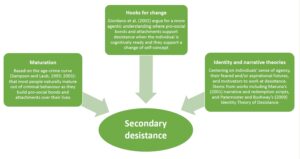A probation service in the South West of England ‘requires improvement’ but is starting to make progress under new management, according to inspectors in a report published today.
HM Inspectorate of Probation conducted a routine inspection of the organisation formerly known as Bristol, Gloucestershire, Somerset and Wiltshire Community Rehabilitation Company. The Inspectorate looked at 10 aspects of their work and has given the organisation an overall rating of ‘Requires improvement’.
The inspection came just a few months after the organisation’s previous owners went into administration. The new owners – Seetec, a private limited company – now run probation services in this region as well as in Devon, Dorset and Cornwall; Kent, Surrey and Sussex; and Wales.
Chief Inspector of Probation Justin Russell said:
“In the months before the takeover, there was a significant lack of investment in the organisation. This affected staff at every level and their ability to deliver effective probation services. There were too few staff and, according to their own system, 15 per cent of them had dangerously high workloads. In some instances, staff were managing an average of 70 cases – this is too high.”
The organisation supervises more than 6,000 low and medium-risk offenders across the region. Around a third are preparing to leave or have left prison, while others are serving community or suspended sentences.
Inspectors found the quality of work with people under probation supervision fell below expectations. They analysed a sample of cases taken from before the takeover and rated the planning, implementation and review of those cases as ‘Inadequate’ – the lowest possible rating. Some of this work was among the worst that inspectors had seen anywhere in the country.
Mr Russell said:
“Staff did not always pay sufficient attention to managing risks and keeping other people safe. We would have liked to have seen stronger links with other agencies, such as the police and social services, particularly in cases that involved domestic abuse and child protection. Urgent action is needed to ensure staff understand the importance of public protection work. Managers need to ensure staff are suitably trained to deliver this work and there is appropriate oversight.”
Work to support people leaving prison – known as ‘Through the Gate’ – was rated ‘Good’. The team has expanded since April and includes staff based at HMP Bristol, HMP Portland, HMP Guys Marsh and HMP Leyhill. Inspectors found the majority of individuals had resettlement plans that captured their strengths, needs, and factors that would help them to move away from committing further offences.
Mr Russell concluded:
“At the time of the inspection, much of the legacy of the former owners was still in place. The new owners are pursuing the right actions. They have undertaken a root and branch review of services, started to invest in both staff and infrastructure, and introduced a greater emphasis on quality assurance. Initial indications are positive, and changes are being implemented with enthusiasm by leaders.”
More detailed findings of the report are reproduced below.
Organisational delivery
- BGSW probation services is in the early stages of transition from the previous owners to management by KSS CRC. Initial indications are positive, and changes are being implemented with enthusiasm by leaders. Nevertheless, much of the legacy of the former owners remains in place, which has a significant impact on effective practice. Senior leaders recognise these shortfalls, and the strategy to take BGSW forward is comprehensive, yet challenging. However, substantial improvement is unlikely for some months.
- The casework for operational staff is too high. There are too few staff in post and their training and development have been compromised. There is too little oversight of case supervision. Staff recruitment to fill vacancies, delivery of training and a reduction in workload are in train but progress has yet to be felt. Only 20 per cent of responsible officers felt their caseloads were manageable.
- The range of group and individual interventions is designed to meet the needs of service users, but this is undermined by cancellations and delays in provision. Access to support services is too variable across the region covered by BGSW probation services. Relationships with partner agencies are starting to improve from a low base.
- A comprehensive review of estates has been undertaken and actions to rectify shortfalls are being taken. A reasonable range of management information and data is available to all managers. A new information and communications technology (ICT) programme is being introduced.
Case supervision
The inspectors’ findings about the core task of offender supervision are extremely critical:
- In all aspects of case supervision, insufficient attention is paid to managing risk and keeping other people safe.
- Assessments generally identify offending-related factors, but too often (48%) they are not informed by available data and are not sufficiently analytical.
- In a reasonable majority of cases (66%), planning focuses sufficiently on reducing reoffending, but in only a third of cases does it focus sufficiently on keeping other people safe.
- Reasonable attempts are made by responsible officers to support individuals to complete their sentence; however, access to services to address offending are insufficient.
- Reviews sufficiently engage individuals in too few cases (39%), and the focus on desistance is inadequate (44%).
Unpaid work
A good range of placements are available for individuals to make reparation, and opportunities are used to support personal development effectively. However, staff pay insufficient attention to issues relating to risk of harm. Stand-downs remain too frequent.
Through the Gate
Through the Gate provision is good, with an appropriate focus on assessment of need and delivery of support. Liaison with community-based responsible officers is reasonable, but greater focus on managing risk and information-sharing is required.









